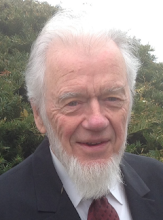An opinion piece on the October 3 website of the Washington Post caught my eye and captured my attention. It was by WaPo’s contributing columnist Kate Cohen and titled “America doesn’t need more God. It needs more atheists.”
Kate
Cohen is a mother, an atheist, and an author. Her book, We of Little
Faith: Why I Stopped Pretending to Believe (and Maybe You Should To), which
was also published on Oct. 3, states that being a mother led her to “come out”
as an atheist.
Cohen
was raised Jewish and married a Jew in a Jewish wedding—but she explains that she
never really believed “in that jealous, capricious, and cruel Old Testament
God” (p. 12). But she never identified herself as an atheist until she
began rearing her children.
In
her book, Kate tells how she vowed to teach her children “what I truly thought
about everything,” and she “did not let them decide for themselves,” for she
strongly believed that “passing on one’s preference for reason, evidence, and
honesty…is the truly moral choice” (pp. 13, 14).
Kate
was born and reared in Virginia. She graduated from Dartmouth University and
married in 1997. She is now in her late 40s, but I was unable to find out how
old her children are. They are probably young adults now and it would be
interesting to know how they have turned out.*1
There
are positive aspects of Kate Cohen and her book that should be recognized. She
is honest in identifying who she is rather than seeking (any longer) to keep
her lack of religious faith closeted. And she encourages others to be honest
also as intimated in her book’s subtitle.
Even
though I have spent most of my life seeking to help people become
God-believers, I think those who don’t believe in God should be able to identify
themselves openly rather than pretending to be and to believe, what they are
not and do not. Honesty, indeed, is the best policy.
Further,
Cohen seeks to remove the stigma from those who identify as atheists. She
writes, “Like atheism, homosexuality is a difference that can be hidden.
Sociologists call it a Concealable Stigmatized Identity” (p. 221), but she
claims that that stigma is disappearing more rapidly for LGBTQ people than for
atheists.
But
as a God-believer—and because I am a God-believer—I certainly think that people
need to be respected/accepted regardless of their religious faith or lack
thereof. After all, that is what freedom of religion means.
There
are also highly questionable aspects of Cohen’s book. While there are some
nuanced places, she gives the impression that all atheists are largely the same,
and “good,” whereas all who believe in God/religion are also largely the same,
and “bad.” (See, for example, p. 228).
In strongly encouraging people who do not believe in God to
affirm their atheism, she writes,
If you need a reason to let people know that you don’t believe moral authority derives from a Supreme Being, then I offer you no less than making America a safer, smarter, more just, and more compassionate country.*2
It
is because of that belief that the WaPo article was titled “America doesn’t need more God It Needs More Atheists.”
On
the previous page, she asserts, “…peel back the layers of discrimination
against LGBTQ people and you find religion.”
She
further contends that “control over women’s bodies,” as well as “school-library
book bans, and even the backlash against acknowledging the racist underpinnings
of our nation are motivated by religion.”
To
such charges, I can only say “Yes, but….” Yes, there are Christians
who are exactly such as Kate mentioned. But,
there are Christians who are against discrimination and control as much as she
is. And regarding climate change, note what Pope Francis said about in his 10/4
“apostolic exhortation.”*3
Moreover,
if truth were known, my guess is that there is a large percentage of atheists
who support discrimination and control as well as the (mostly) conservative
evangelical Christians she uses as her foil.
So, no, Ms. Cohen, America doesn’t need less God and more atheists. It needs more intellectually honest and intelligent atheists (or whatever) as well as intellectually honest and intelligent God-believers to work together to make our society more compassionate and more just for all.
_____
*1 In her book, Cohen says that her
children are “engaged, informed, and savvy citizens” (p. 227).
*2 These words are in a paragraph that
begins with her saying that “anti-atheist sentiment is not a matter of life and
death in America. But transphobia is, sexual violence against women is, forced
birth is, climate change is, and global pandemics are” (p. 230).
*3 I wrote about this in some detail
in my Oct. 13 blog post (see
here).



